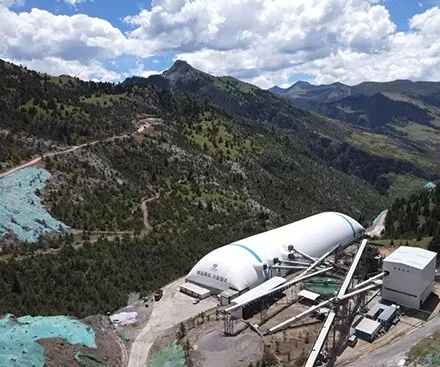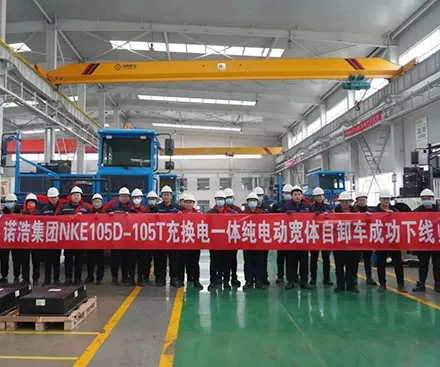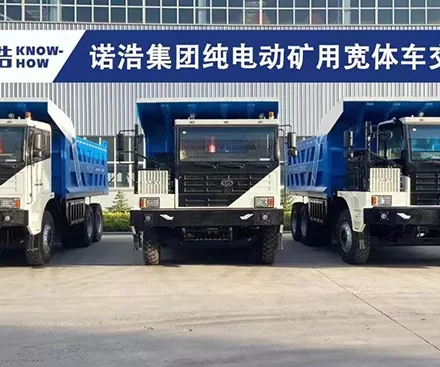Wheel loaders are powerful machines essential in construction, mining, agriculture, and many other industries. They perform various tasks, such as lifting, transporting, and loading materials, making them indispensable on job sites. However, to ensure optimal performance and longevity, wheel loaders require regular maintenance. Proper maintenance not only extends the machine's life but also minimizes downtime and repair costs. This article will discuss essential maintenance practices to keep your wheel loader in top condition.
The first step in maintaining a wheel loader is conducting routine inspections. Before and after each use, operators should perform a thorough check of the machine. Look for signs of wear and tear, such as cracks, rust, or other damage to the body, tires, and hydraulic lines. Check fluid levels, including engine oil, hydraulic oil, transmission fluid, and coolant, and top them up as necessary.
Cleaning is equally important. Dirt, debris, and other contaminants can accumulate in various parts of the wheel loader, affecting its performance and causing premature wear. Regularly clean the machine, paying particular attention to the engine compartment, air filters, and radiator. Keeping these areas clean ensures proper airflow and prevents overheating.
Fluids are the lifeblood of any heavy machinery, and wheel loaders are no exception. Regularly checking and maintaining the appropriate fluid levels is crucial for smooth operation. Use the manufacturer's recommended fluids and adhere to the specified change intervals.
Engine oil should be changed according to the manufacturer's guidelines, typically every 250 to 500 hours of operation. Additionally, hydraulic oil needs regular checking and replacement. Contaminated or degraded hydraulic oil can lead to inefficient performance and potential damage to hydraulic components. Always use the recommended oil type and ensure filters are replaced concurrently to maintain system integrity.
The hydraulic system is a critical component of a wheel loader, powering essential functions like lifting and tilting. Regular inspection of hydraulic hoses and fittings for leaks, cracks, and signs of wear is vital. If a leak or damage is found, it should be addressed immediately to prevent further damage and potential safety hazards.
Hydraulic filters must also be checked and replaced as recommended. Clean filters ensure that the hydraulic fluid remains contaminant-free, which is crucial for maintaining the system’s efficiency and preventing damage to hydraulic components.
Tires are essential for the stability and maneuverability of a wheel loader. Regularly inspect tires for signs of wear, cuts, and punctures. Ensure that tire pressure is maintained at the levels recommended by the manufacturer. Proper tire maintenance not only enhances safety but also improves fuel efficiency and prolongs tire life.
The undercarriage of a wheel loader, especially for those used in rough terrains, is prone to wear and tear. Regularly check the undercarriage for any damage, loose bolts, or excessive wear on parts like the bucket edges and teeth. Keeping these components in good condition ensures optimal performance and safety.
A fully functional braking system is crucial for the safe operation of a wheel loader. Regularly inspect brake pads, discs, and drums for wear. Hydraulic brake systems should be checked for fluid levels and potential leaks. Addressing any signs of wear or damage promptly is essential to ensure the operator's safety and the equipment's longevity.
The electrical system of a wheel loader powers critical components such as lights, gauges, and controls. Regularly check the battery, ensuring it is fully charged and terminals are clean and corrosion-free. Inspect all electrical wiring and connections for wear, damage, or loose connections. A well-maintained electrical system ensures reliability and reduces the risk of operational downtime.
Following the manufacturer's recommended maintenance schedule is essential for prolonging the life of a wheel loader. Scheduled maintenance tasks typically include engine tune-ups, oil and filter changes, and detailed inspections of all major components. Keeping a detailed log of all maintenance activities, including dates, services performed, and parts replaced, is a good practice. This record can help identify recurring issues and make informed decisions about future maintenance needs.
Operator training is a crucial aspect of wheel loader maintenance. A well-trained operator understands the machine's workings and can identify potential issues before they escalate. Providing operators with comprehensive training on proper operation and maintenance procedures can significantly reduce wear and tear and prevent avoidable damage.
Regular maintenance of a wheel loader is not just about keeping the machine running; it’s about ensuring safety, enhancing performance, and maximizing return on investment. By adhering to these maintenance tips, you can extend the life of your wheel loader and reduce operational costs. For additional information on maintenance best practices or to find a reliable supplier for parts and services, contact us today. Our team of experts is ready to assist you in keeping your equipment in optimal condition.

Jul. 23, 2022
View More
Jun. 15, 2022
View More
Jun. 01, 2022
View More